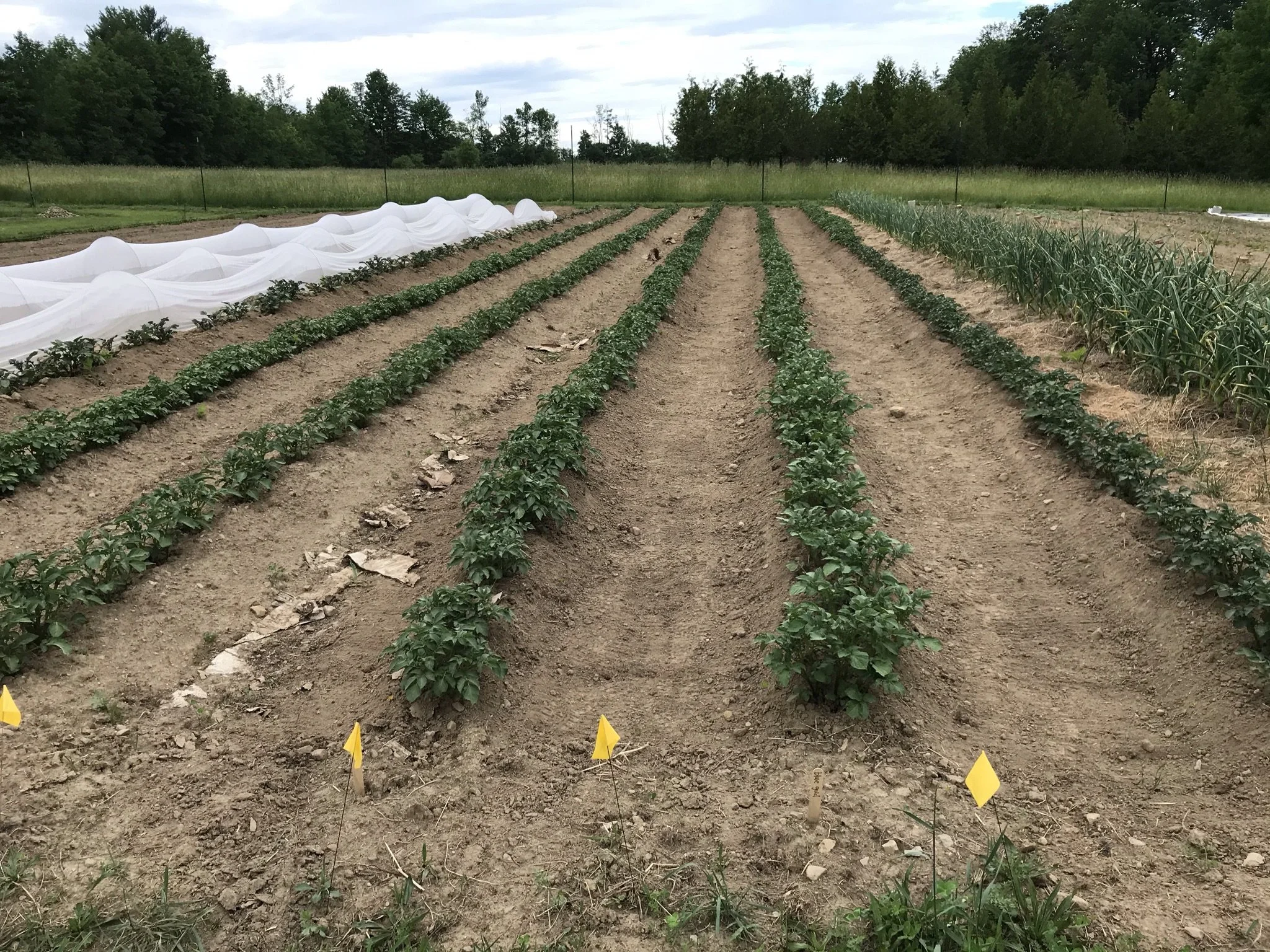Long story short… we grow food!
Our experience has led us to a farming philosophy and methodology that we believe is best for the land we grow on and the customers we wish to serve. Green & Gold works to embody the beliefs behind sustainable agriculture and food sovereignty: sustaining the soil, sustaining the community, sustaining the farmers and workers, and sustaining our precious and beautiful planet. We strive to be a productive, beautiful business that produces high quality food and enjoyable work. How do we do that?
We focus on diversity in our crop choice: we grow over 40 kinds of vegetables, fruits, and herbs. Within those types of crops, we grow over 130 varieties. For example: a tomato is a type of crop; Amish Paste and Striped German are two very different varieties of tomato, each with their own benefits and downsides. Having diverse crop and cultivar choices allows us to remain financially viable in case of crop loss, and provides our customers with a more varied and nutritious diet.
We focus on biological controls, soil health, and physical barriers to protect our crops: techniques like floating row covers, insect netting, and crop rotation are always in practice on an organic farm. They keep the disease and pest pressure low so our crops can come to market looking great without the help of synthetic pesticides. Low-till bed preparation and natural amendments like compost keep soil organisms healthy, so that they can feed and protect our crops. And when these plant-positive methods fail, in an effort to save crops, you may find us picking bugs off by hand, investing in predatory insects, or applying beneficial microorganisms to our plants. We do not judge farmers who choose to use synthetics - since replacing labor with chemicals makes food more affordable - we simply choose other methods. And we absolutely never use broad-spectrum insecticides, including even those labeled for organic production.
We focus on hand cultivation, tarp utilization, and flaming to keep weeds under control: one reason why organic produce can be more expensive than conventional is that paid labor is what removes weeds, not cheap herbicides. On larger farms, this often means investing in mechanization (i.e. spending a lot of time on a cultivating tractor). We are not opposed to this, but it isn’t very efficient on our size of farm. Instead, weeds can be smothered with large tarps, and can also be killed easily with a plethora of different hoes when they are very small (a different kind of mechanization).
All that said, Green & Gold is also Certified Organic! So don’t just trust what’s said here…you can also trust our certifying agency, Vermont Organic Farmers (VOF).
If you have any questions about how we grow, please don’t hesitate to get in touch by using the Contact tab. Knowing and engaging with who you get your food from is an important step in building a more transparent and equitable food system for everybody.

